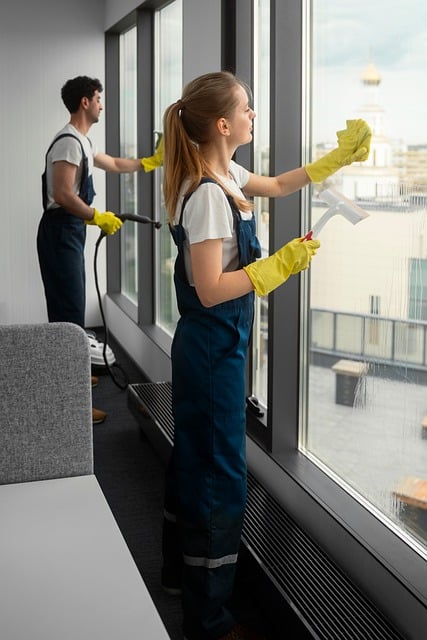Finding Cleaning Jobs: Your Complete Guide to Opportunities, Salaries, and Benefits
Cleaning jobs represent a stable career option across various industries, from residential to commercial settings. Whether you're looking for part-time work, a flexible schedule, or a long-term career path, the cleaning industry offers diverse opportunities for individuals at all skill levels. This guide explores how to find cleaning jobs in your area, what salary expectations are realistic, and the often-overlooked benefits of working in this essential industry.

How to Find Cleaning Jobs in My Area
Finding cleaning jobs locally doesn’t have to be complicated if you know where to look. Start by checking online job boards like Indeed, ZipRecruiter, and Monster, which allow you to filter searches by location and job type. Many cleaning companies also advertise positions on their websites or social media pages. Set up job alerts with specific keywords like “cleaner,” “janitor,” or “housekeeping” plus your city name to stay updated on new opportunities.
Networking can be particularly effective in the cleaning industry. Ask friends and family if they know of any openings at their workplaces. Local community centers, libraries, and grocery stores often have bulletin boards where cleaning companies post job advertisements. Additionally, consider directly contacting cleaning businesses in your area—many smaller companies may not advertise online but are often looking for reliable workers.
Another effective approach is to register with temporary staffing agencies that specialize in janitorial and cleaning placements. These agencies can connect you with short-term opportunities that sometimes lead to permanent positions. Local hospitals, schools, hotels, and office buildings also frequently hire cleaning staff directly, so checking their career pages can yield promising results.
Average Salaries of Cleaning Jobs Staff
Cleaning job salaries vary depending on factors like location, setting, experience level, and specialization. According to recent industry data, residential housekeepers earn an average of $12-15 per hour, while commercial janitors typically make between $13-18 per hour. Specialized cleaners, such as those working with hazardous materials or in medical facilities, can earn significantly more—sometimes $20-25 per hour or higher due to the additional training and certifications required.
Geographic location heavily influences cleaning salary ranges. Urban areas and regions with higher costs of living generally offer higher wages for cleaning professionals. For example, cleaners in metropolitan areas might earn 15-30% more than those in rural settings. Experience also matters—cleaning supervisors and managers can earn $35,000-$45,000 annually, while entry-level positions typically start closer to minimum wage.
Many cleaning positions also offer overtime opportunities, with premium pay rates for evening, weekend, or holiday shifts. Full-time employees at larger institutions often receive comprehensive benefits packages that significantly enhance the overall compensation value beyond the base salary.
Prices, rates, or cost estimates mentioned in this article are based on the latest available information but may change over time. Independent research is advised before making financial decisions.
Benefits of Cleaning Jobs Beyond the Paycheck
Cleaning jobs offer numerous advantages that aren’t immediately obvious but contribute significantly to job satisfaction and work-life balance. One major benefit is the flexible scheduling options available in many cleaning positions. Evening, weekend, and part-time opportunities abound, making cleaning work compatible with family responsibilities, education, or even second jobs.
Physical activity is another underrated advantage of cleaning work. Unlike sedentary office jobs, cleaning keeps you moving throughout your shift, which can contribute to better physical health and fitness. Many cleaning professionals report enjoying the satisfaction of seeing immediate, tangible results from their work—transforming spaces from dirty to clean provides a sense of accomplishment that many other jobs lack.
Job security represents another significant benefit in the cleaning industry. Cleaning services remain essential across economic cycles, even during recessions. The COVID-19 pandemic highlighted the critical importance of cleaning professionals, with increased demand for thorough sanitization services across all sectors. This essential worker status means that qualified cleaning professionals rarely struggle to find employment.
Career advancement opportunities exist within the cleaning industry as well. Entry-level cleaners can progress to team leader positions, supervisory roles, and eventually management. Some experienced professionals start their own cleaning businesses after learning the industry. Additionally, specialized certifications in areas like green cleaning, biohazard remediation, or floor care technology can lead to higher-paying positions and expanded career options.
Many established cleaning companies and institutional employers offer concrete benefits packages that include health insurance, paid time off, retirement plans, and even tuition assistance programs. These benefits, combined with the relatively low barriers to entry, make cleaning jobs an accessible path to stable employment with comprehensive benefits that might otherwise require advanced education.
The cleaning industry continues to evolve with new technologies, environmentally friendly practices, and specialized services creating diverse niches for career growth. Whether you’re seeking short-term employment or a long-term career path, cleaning jobs offer stability, flexibility, and opportunities for advancement that make them worth serious consideration in today’s job market.




